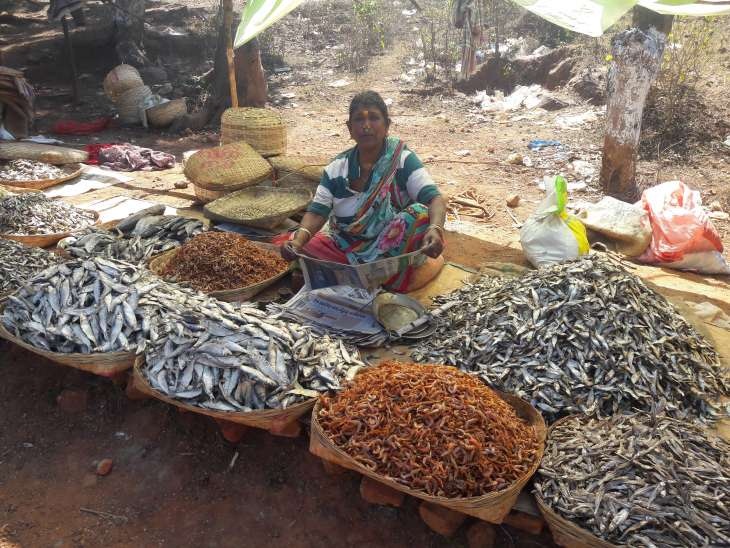Daringbadi: Poverty-stricken women in tribal-dominated Kandhamal district, who used to subsist on meagre incomes, have defied many odds and transformed their lives by taking up small businesses.
While the people here depend on agriculture and forest produce, the introduction of weekly markets is slowly changing the lifestyles of the people here.
Women, who once worked as farmhands and had no other source of income, are now taking up small businesses to extend a helping hand to their husbands. Sale of dry fish, utensils, plastic items and goats and chicken in these weekly markets has given them a boost to their earnings.
Years ago, many of the villagers used to leave their homes for at least three months to work in brick kilns of neighbouring districts.
Since the introduction of weekly markets, things have changed – for good. The markets are held five days a week in Daringbadi block. The weekly market is held in Sikarmaha Sunday; Brahmanigaon Monday; Katingia Tuesday; Saramuli Thursday; Gadapur and Budaguda Friday.
These weekly markets have not only helped women to get into small business but also keep away women farmers from falling prey to traders and middlemen. They can directly sell their produce, mostly vegetables, brooms, sal leaves to customers.
Many women make extra money by putting up sweet and pitha stalls in the weekly markets.
In the past, with no work in their villages, women used to walk kilometres to forest to collect sal leaves. They made single-use sal leaf plates and sold them for a pittance. The women used to leave by six in the morning, packing a little rice, and return after 12 hours.
“We used to make grass brooms that took days to dry,” said a woman. The effort earned them Rs 10-30 per broom. As everyone made brooms, they did not have a say on the price. After working for about 12 hours, they hardly earned Rs 30-40 a day.
On the other hand, the men took their wives’ hard-earned money and spent on country liquor. Gone were the days when the women were desperate to be hired as labour.
Previously, the families could not afford to buy even a bar of soap, let alone educate their children. “Now our children get to eat eggs and drink milk regularly,” a woman said.
The women now fulfill the financial needs of their husbands too. “I bought my husband a motorcycle,” another woman said shyly.
The women too make decisions nowadays and the men comply. “We were a scared lot earlier, but now we have gained confidence and belief in our strength,” said Dharitri Behera and Sabitri Behera, who sell dry fish.
PNN
